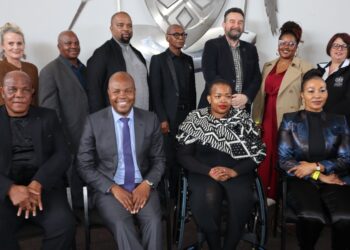SIYABUSWA – World Mental Health Day is commemorated annually on October 10.
Rural areas bear a significant burden of mental disorders, with limited access to services that promote mental health and provide support. The Mpumalanga Mental Health Society (MMHS) is actively working to bridge this gap.
Established in 1994, the Mpumalanga Mental Health Society has been driven by the increasing demand for the essential services it provides. It is affiliated with national and international organizations such as the South African Federation for Mental Health and the World Federation for Mental Health.
Operating under the umbrella of the national body of the South African Federation of Mental Health since 1994, the society aims to coordinate, monitor, and enhance services for individuals with Intellectual Disabilities, Psychiatric Disabilities (Mental Illness), and to promote mental well-being.
The Mpumalanga Mental Health Society operates through 9 offices across Mpumalanga, namely Siyabuswa, Middelburg, Delmas, Secunda, Standerton, Piet Retief, Nelspruit, Bushbuckridge, and Lydenburg, with a total of 23 staff members.
This includes 1 Provincial Director, 3 Managers, 18 Social Workers, and 1 Social Auxiliary Worker.
Nomthandazo Masango, the Social Work Manager at MMHS Nkangala District, expressed their fervor for advocating the rights of the disabled and raising awareness within the community.
Despite their passion, they encounter numerous challenges on a daily basis, such as the scarcity of government educational psychologists for assessing children with learning disabilities for placement in special schools.
Additionally, they face obstacles like insufficient support from the SAPS in apprehending mental health care users for 72-hour observation in hospitals as mandated by the Mental Health Care Act, limited residential care facilities for individuals with disabilities and mental health care users, and inadequate funding due to NPO’s reliance on sponsors.
The Mental Health Care Act 17 of 2002 aims to provide care, treatment, and rehabilitation for mentally ill individuals, establish procedures for their admission, create Review Boards for every health establishment, determine their powers and functions, and address the care and administration of the property of mentally disabled persons.
Masango emphasized the importance of community members reporting abuse of individuals with disabilities and mental health care users, as well as the misuse of disability grants.
She urged against confining children with disabilities indoors, stressing their right to education and advocating for their support and care.
Nothukuthula Kabini, Assistant Manager at Vukuzenzele Stimulation Centre, highlighted the challenges of working at the center due to parents not registering their children and concealing them. Kabini urged parents to enroll their children in the center for their improvement, emphasizing that the center is there to assist them.
She also noted that these children receive grants, making it easier for parents to afford the services.
























